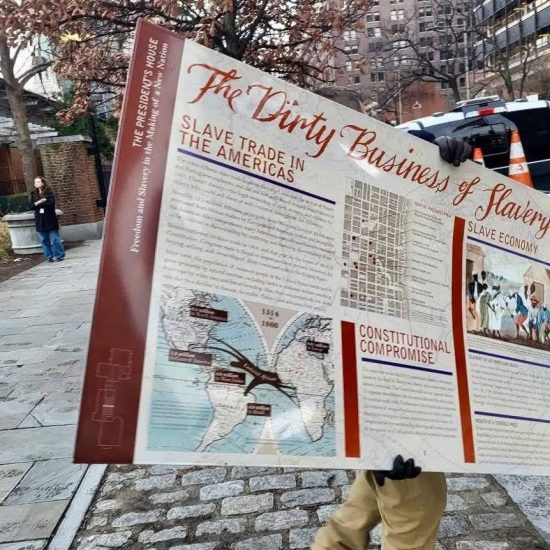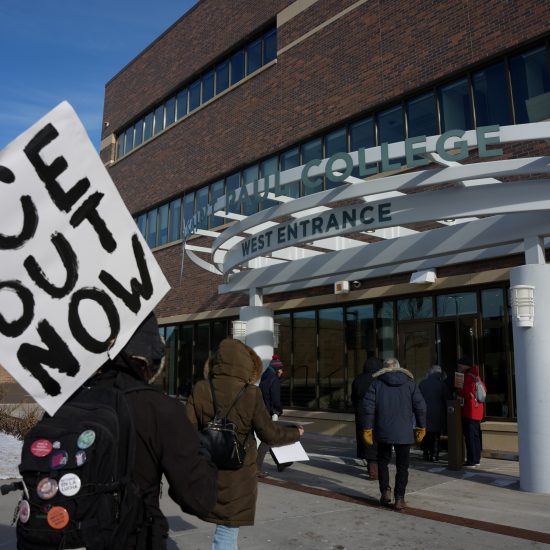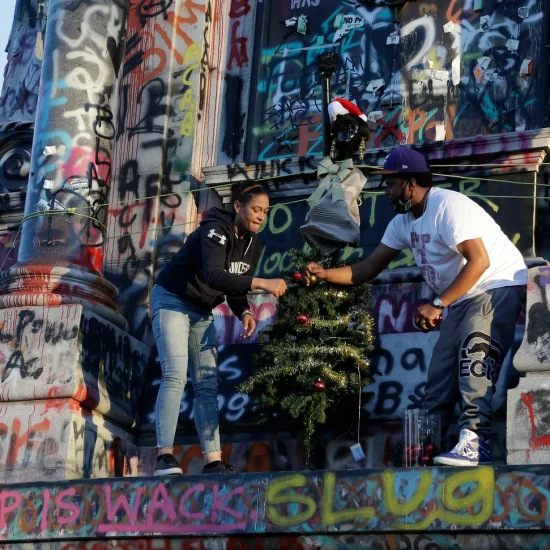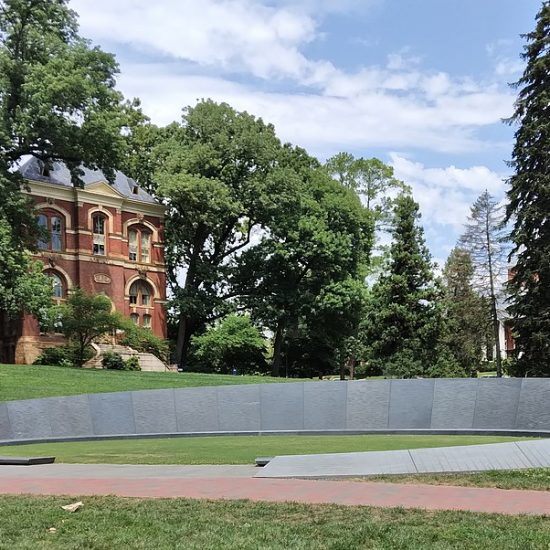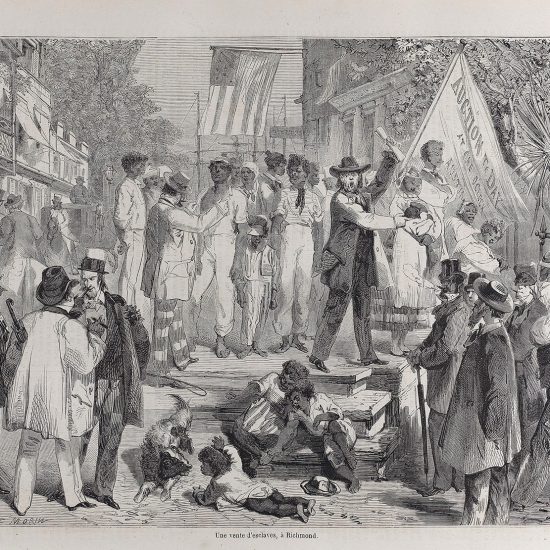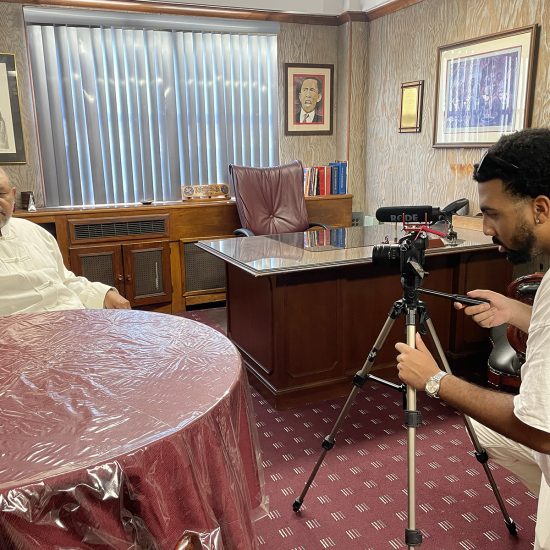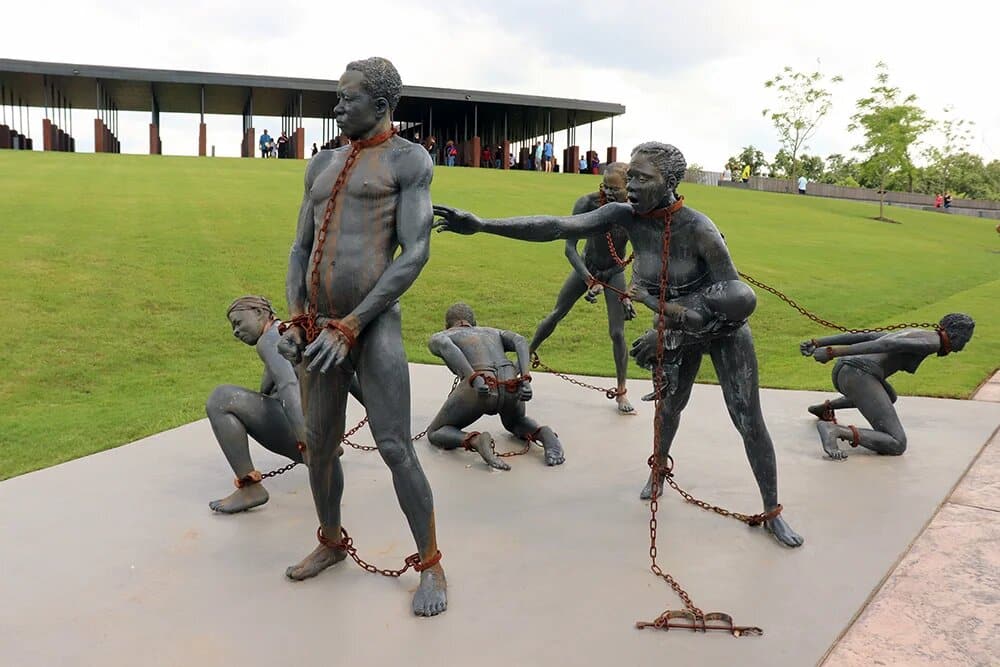
A prominent Southern Baptist theologian who sparked controversy for defending the slavery of the enslaver founders of Southern Baptist Theological Seminary in Louisville, Kentucky, doubled-down in another essay. Tom Nettles wrote a new piece published Thursday (Sept. 10) on the website of Founders Ministries, a group devoted to promoting Calvinism within the Southern Baptist Convention, praising the “the wisdom of Providence” that saw the evangelization of enslaved persons through the institution of slavery.
His response comes amid criticism of his first piece by several Southern Baptist pastors and others. Some Black Southern Baptists have been pushing for months for SBTS to remove the names of its four founders — James Boyce, John Broadus, Basil Manly Jr., and William Williams — who together enslaved more than 50 persons. Nettles wrote his earlier piece on Aug. 26 in response to an open letter by Dwight McKissic, pastor of Cornerstone Baptist Church in Arlington, Texas, calling on the removal of campus honors to enslavers.
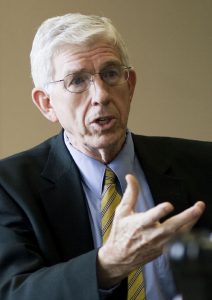
Tom Nettles. (Baptist Press)
Nettles started his latest essay by criticizing an SBTS student, Deryk Hayes, who wrote on social media, “As I’ve walked across the campus today, I realize that an unfortunate reality is that the attitude and heart of John A. Broadus still exists.” Nettles argued that there’s no reason for the student to feel echoes of Broadus’s racism, which Nettles doesn’t call racism but “a deeply-flawed judgment concerning the African-American population in the South.”
“But in whom and where does this judgment still exist? Certainly, it is not an existential reality among any of the seminary personnel today,” Nettles wrote. “Nor is it present in any of the names to whom objection is being made, for they are dead to this world and now live among the spirits of just men made perfect.”
Yet, Nettles wrote this claim that the student shouldn’t see the attitude of Broadus on campus even though Nettles, a senior professor at SBTS, penned a 3,200-word essay in August justifying slavery “in biblical infallibility and in the revelatory ministry of the apostles” and claiming that being “antebellum slave owners” and even “post-bellum white supremacists” doesn’t mean men like Broadus and Boyce were “necessarily heretical.”
In the new essay, Nettles insisted that all “hint of racism that dribbled through the seminary community and its policies for decades” has since “been mopped up.”
He did, however, acknowledge McKissic was right that no evidence exists that Boyce repented of White Supremacy.
“Like Pastor McKissic, I could not point to a time of repentance on Boyce’s part. Had he been convinced by Scripture that his position was iniquitous and trespassed biblical standards of righteousness, I believe he would have repented. Though he recognized abuses — destructive abuses — in the system, he remained unconvinced that the system itself was wrong,” Nettles wrote.
‘Providence’ & Evangelism
However, Nettles goes beyond just arguing against what he called a “cancel culture” effort to erase Broadus and the other founders. He again attempted to explain away their slavery as part of “the wisdom of Providence.” Although he said that “an observation of Providence is not the recommendation of a method,” he argued that “observations of the outcomes of providence are ‘defensible’” in “discerning the wisdom of God in events that in themselves may or may not be unrighteous.”
Nettles pointed to the attitude of Joseph after being reunited with his brothers who sold him into slavery, pointing out that Joseph declared that what they had intended for evil God had used for good. Nettles didn’t note that in that analogy the enslaver founders of SBTS wouldn’t be the honored Joseph but someone like Potiphar.

An art installation of slaves at the National Memorial for Peace and Justice by artist Kwame Akoto-Bamfo in Montgomery, Alabama. (Adelle M. Banks/Religion News Service)
In particular, Nettles pointed to evangelizing the souls of enslaved persons as a defense of those who enslaved the bodies of those souls.
“Boyce was zealous for the gospel to be given” to the enslaved, Nettles wrote. “This disposition is not a defense of slavery as an absolute, but, in light of its engrafting into a society, a necessary orientation to it.”
“Is it wrong to observe that providence,” Nettles added, “brought thousands and eventually millions to a saving knowledge of the gospel” through slavery?
Nettles seemed to argue the only options for Boyce was either to enslave people and evangelize them, or enslave them and not evangelize. Thus, he attempted to move the question away from the act of enslavement to the act of evangelism. Left out would be an option not taken by SBTS’s four enslaver founders: voluntarily freeing their enslaved persons and preaching against slavery all while evangelizing Blacks and Whites.
“Given, however, an inherited situation in which large numbers of Brother McKissic’s ancestors were present — through whatever brutal and unrighteous means were used — is a refusal to give them the gospel to be pursued as a righteous protest against the inhumane means of their having arrived on the plantations?” Nettles wrote.
He also criticized those who condemn Boyce and the other enslavers, urging people to “suspend our cynical look at the culture” and recognize the “independent and absolute value to the propagation of the gospel even in such a situation” so that “we too might see some gracious benefits in the midst of that context.”
To remove the names, Nettles added, would mean the “reminders of the faithful, sacrificial, and often tortuous and torturous path of commitment that led to the present moment of being ‘trusted for the truth’” at SBTS “would be replaced with a false sense of our virtue and purity.”
Thus, Nettles insisted the names of the four enslaver founders should remain in positions of honor at SBTS — even painting of picture of the founders in heaven with some of those formerly enslaved by those founders (though the enslaved are left unnamed by Nettles and unhonored on SBTS’s campus).
“I am sure that the founders could not care less as to what happens to their names now among the dying of this world, he wrote. “Their names are in the Lamb’s Book of Life and they see the beauty of their Redeemer and approach him with unvarnished praise and gratitude for sovereign grace in the rescue of sinners. They do this in the company of many of their former slaves.”
“They would lose nothing by the removal of their names,” he added. “We, however, would lose much.”
Criticisms of Nettles
Before Nettles wrote his newest essay, several Southern Baptist pastors took to social media to criticize his earlier piece for defending slavery.
McKissic wrote, “Nettles has revealed the theology & thinking of the SBTS founding slaveholders, & those who affirm the founders. You can’t affirm the slaveholders without affirming slavery. Now we know why the founders were celebrated & continue to be. Praying this generation will change things.”
McKissic added that “the SBTS founders taught & practiced things in conflict” with the Baptist Faith & Message of 2000 and “the Bible, namely their devaluation & degrading of Africans & women. That’s what made them unorthodox & heretics.”
Alan Cross, pastor of Petaluma Valley Baptist Church in Petaluma, California, wrote of Nettles’s essay: “See 1 Timothy 1:8-10. An enslaver is one condemned as lawless, ungodly, and contrary to sound doctrine. The whole position of the Confederacy was to extend and defend slavery AND the slave trade. How can Nettles defend the founders of SBTS as holding to sound doctrine?”
“Tom Nettles and Founders view of slavery and SBTS founders seems to be at odds w/ 1995 SBC Resolution on Racial Reconciliation that has guided the SBC for 25 yrs. … Nettles’s position is historically and theologically wrong,” added Cross, author of When Heaven and Earth Collide: Racism, Southern Evangelicals, and the Better Way of Jesus.
Matthew Godshall, an SBTS graduate who is a theology professor at William Jessup University in San Jose, California, argued, “There are so many theological, hermeneutical, historical, and pastoral problems” with “Nettles justifying ‘orthodox’ enslavers like Boyce, Broadus, et al.”
“I have a PhD diploma hanging on my wall from The Southern Baptist Theological Seminary,” Godshall added. “My heart breaks over the current push by some SBTS leaders to defend the founders and the racist, unbiblical, dehumanizing system they promoted and participated in.”

